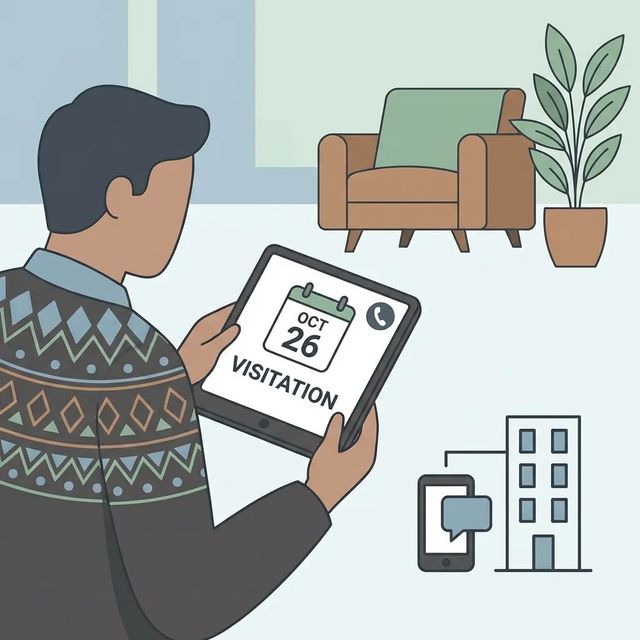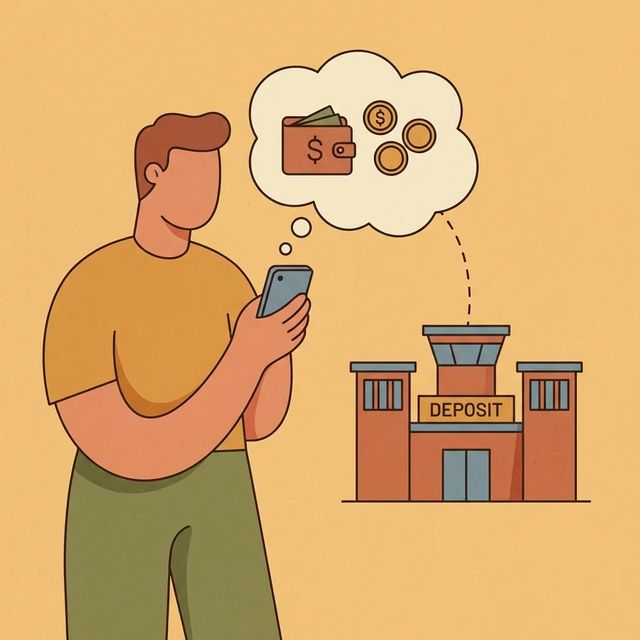Faulkner County Detention, AR
Explore
Find an Inmate at Faulkner County Detention, AR
Search for a loved one and send messages and photos in minutes.

Guides for This Facility

How to Visit Faulkner County Detention, AR (AR)
Visiting someone at Faulkner County Detention takes some preparation. Here's the contact information you need and what to verify before your visit.
Read Guide
How to Send Money to Faulkner County Detention, AR (AR)
To send money to someone at Faulkner County Detention, you'll need to contact the jail directly for current deposit methods and rules. The only fee information in available records is a Faulkner County Circuit Clerk recording fee ($15.00 for the first page, $5.00 for each additional page). That's for document recording, not inmate accounts.
Read Guide
How to Contact an Inmate at Faulkner County Detention, AR (AR)
Need to reach someone at Faulkner County Detention? Start by calling the correct detention unit. If you're unsure where the person is housed, the Sheriff's Office can help you figure that out.
Read GuideAt a Glance
Visitation
- The Faulkner County Sheriff’s office listing includes Sheriff Tim Ryals with an office phone, office hours, and an office address in Conway.
- The Faulkner County Collector provides office locations, phone numbers, and hours for Conway and Greenbrier.
- Many Arkansas jails use video-based visitation that runs on on-site kiosks or remote vendor platforms.
Sending Money
- Faulkner County accepts online tax payments through ACT Data Scout; credit-card payments carry a vendor fee.
- A 10% late assessment fee applies for assessments after May 31.
- Taxes paid after October 15 incur a 10% penalty plus 10% annual interest.
Based on official sources and community feedback. Learn how we verify
Topic Overviews
Visitation
Visitation hours for Faulkner County Detention aren't published here, so start by calling the Faulkner County Sheriff's Office in Conway to confirm the current schedule. Many Arkansas jails now use video-based visitation through on-site kiosks or a remote vendor platform, which means you may need to create an account before scheduling. Appointments are commonly required, visits are time-limited, and facilities often cap weekly visits. You'll likely need approval on the inmate's visiting list before booking anything. Before traveling, verify whether in-person contact visits are allowed, what photo ID is accepted, and the exact steps for scheduling or vendor access.
Read full guideSending Money
Faulkner County accepts online tax payments through ACT Data Scout. Credit or debit card payments in the portal include a vendor convenience fee. Deadlines matter: property assessed after May 31 gets a 10% late assessment fee, and taxes paid after October 15 bring a 10% penalty plus 10% annual interest. If you're adding money for someone at Faulkner County Detention, common deposit options at similar facilities include online payment portals, lobby kiosks, mailed money orders, or commissary and vendor systems. You'll typically need the inmate's state and facility, plus their ID number or full name so funds post correctly.
Read full guideCommon Questions
How do I find Faulkner County Detention visitation hours?
Call the Faulkner County Sheriff's Office in Conway or check the facility page to confirm current visitation hours. The sheriff's office listing includes an office phone and posted hours for Conway.
VisitationDoes Faulkner County Detention use video visits or allow in-person contact visits?
The specific visit format for Faulkner County Detention isn't confirmed in available sources. Many Arkansas jails use vendor video visits or on-site kiosks. Call the sheriff's office or check the facility page to find out whether visits are in-person, video-only, or both.
VisitationWhat ID and approvals do I need to visit an inmate at Faulkner County Detention?
You'll typically need a government-issued photo ID and must be on the inmate's approved visitor list (or complete the facility's visitor approval process). If visitation runs through a vendor platform, set up any required accounts and approvals before trying to schedule.
VisitationCan I pay Faulkner County taxes online?
Yes. Faulkner County accepts online tax payments through ACT Data Scout. Credit or debit card payments made through the portal include a vendor convenience or service fee.
Sending MoneyWhat are the penalties for late assessment or late tax payment in Faulkner County?
A 10% late assessment fee applies for assessments after May 31. Taxes paid after October 15 incur a 10% penalty plus 10% annual interest.
Sending MoneyWhat information do I usually need to add money to an inmate’s account?
You'll typically need the inmate's state and facility, plus their ID number or full name. Common deposit methods include online portals, lobby kiosk payments, mailed money orders, or commissary and vendor systems.
Sending MoneyMore Guides
Ready to Connect?
Search for your loved one to start communicating today
Did You Know?
The facility is run by Sheriff Tim Ryals. You can reach the Faulkner County Sheriff's Office by phone during office hours at their Conway location.
This guide is based on feedback from 65 families and official facility documentation. Learn how we verify
